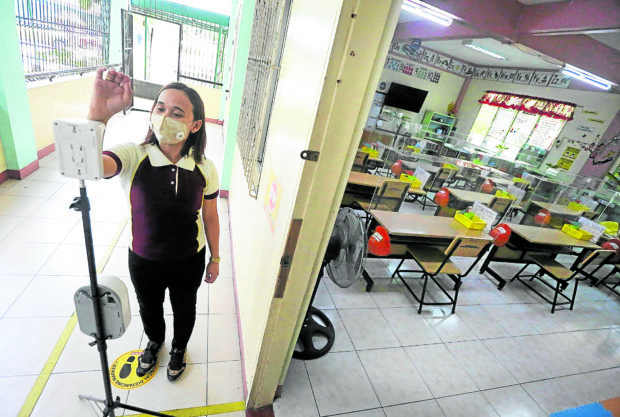In-person school resumption to cut productivity losses
President Duterte’s chief economic manager has urged a safe return to in-person classes in areas at low risk from COVID-19 infections to reduce long-term scarring effects inflicted by the prolonged pandemic not only on learning but the economy as a whole.
Echoing earlier pronouncements of Socioeconomic Planning Secretary Karl Kendrick Chua, Finance Secretary Carlos Dominguez III told reporters that “these two years with practically no education, no schooling for the young is going to have economic scarring in the future.”
Chua, who heads the state planning agency National Economic and Development Authority (Neda), had said that the past school year when students were unable to attend classes in-person was estimated to result in P11 trillion worth of productivity losses during a 40-year period covering a person’s usual working life span.
Estimates of the Manila-based Asian Development Bank had shown that the economy likely incurred P1.9 trillion in losses for each year that schools were closed. For its part, the Washington-based World Bank had said the lack of in-person classes in the Philippines amid the prolonged pandemic likely jacked up learning poverty to a new high of 90 percent this year.
Learning poverty—the share of 10-year-olds who cannot read nor understand a simple story—in the country was already 69.5 percent in 2019, prepandemic.
Article continues after this advertisementDominguez said that while he was not an education expert, he had observed his grandchildren’s online classes to be “inferior” to in-person schooling.
Article continues after this advertisement“There are things that can be made up for those unfortunate events, such as probably reducing the vacation time so that [students] can catch up,” Dominguez said.
In all, Neda had estimated the past’s most stringent COVID-19 lockdowns which delayed the return to in-person classes and wrought high joblessness as well as lower government revenues would cost the Philippines as much as P41.4 trillion in output losses up to 2060.
Dominguez, nonetheless, said fast-tracking pending reforms would help minimize and heal scarring effects on the economy.
“Economic liberalization reforms will help us attract more foreign direct investments and improve services to the Filipino people,” he added. INQ
